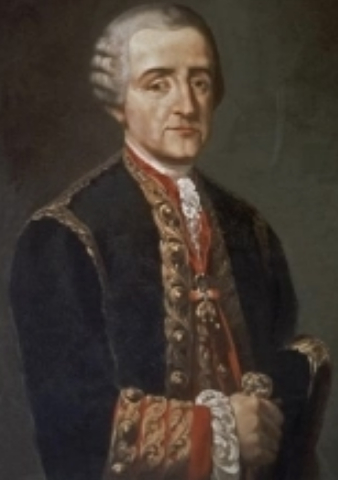On this date in 1719, Spanish statesman Pedro Pablo Abarca de Bolea y Jiménez de Urrea, later the 10th count of Aranda, was born in northern Aragon. He started ecclesiastical studies in the seminary of Bologna, but at age 18 changed to the Military School of Parma. In 1740 he was severely wounded in combat in the War of the Austrian Succession. He then lived in Paris, where he met Diderot and Voltaire and studied the Encyclopédie and Enlightenment movements.
After an ambassadorship to Poland, Aranda became governor of Valencia in 1764. When Charles III was driven from the capital in a 1766 riot, he summoned Aranda to Madrid and made him president of the Council of Castile. Until 1773 he was the most important government minister in Spain. He restored order and aided the king in his work of administrative reform.
Perhaps his greatest achievement, which endeared him throughout Europe to the philosophical and anti-clerical parties, was his work on behalf of the suppression and expulsion of the Jesuits, whom the king considered responsible for the 1766 riot.
Aranda was well-known to American revolutionaries as a supporter. His open sympathy with the French Revolution in 1789 brought him into collision with reactionary forces in Spain and he was imprisoned for a short time at Granada and threatened with a trial by the Inquisition. The proceedings did not go beyond the preliminary stage and he died at age 80. (D. 1798)


